Press Releases
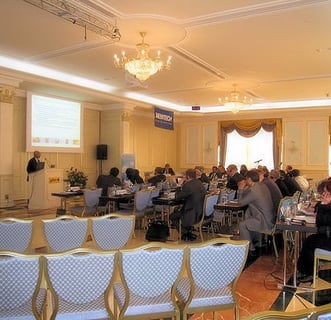

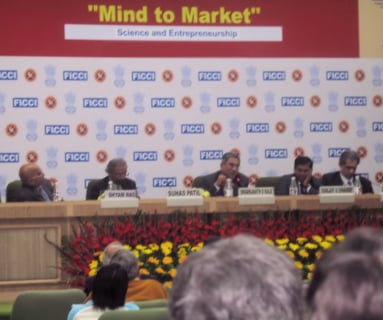

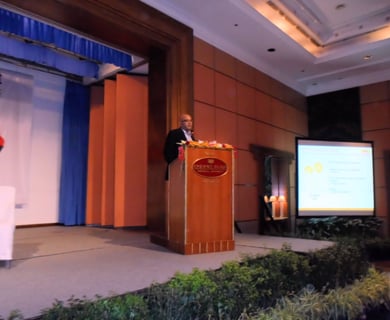

Shyam Rao as a keynote speaker has delved into the various aspects of automatic identification technology and its importance in the transportation industry. He has discussed how this technology can help machines identify objects efficiently and accurately, leading to improved logistics and operational efficiency in the transportation sector. Specifically, in this workshop he focused on the implementation of automatic identification and tracking technologies in the Ministry of Transport of Kazakhstan, on behalf of the Government of India.
Furthermore, the speaker has highlight the significance of automatic data capturing technology, which is often coupled with automatic identification. This technology enables companies to not only identify items but also capture relevant information about them and input the data directly into a computer system. This eliminates the need for manual data entry, reducing the risk of human error and increasing the speed and accuracy of data processing.
The objective of this workshop is to address the different issues related to the use of these new technologies in various departments of the Ministry of Transport. The focus was on the application of automatic identification and data capturing technologies in the railway sector specifically. The speaker payed special attention to the potential benefits and challenges of implementing such technologies in railway operations.
By sharing insights, best practices, and real-world examples, the keynote speaker provided valuable knowledge and guidance to the participants. Through this workshop, the Ministry of Transport of Kazakhstan, on behalf of the Government of India, has gain a better understanding of the potential of automatic identification and tracking technologies in enhancing the efficiency, safety, and overall performance of the railway system.
The keynote speaker's expertise and experience in this field has ensured that the workshop is informative, engaging, and relevant to the audience. Speaker has encouraged active participation and discussion among the participants, enabling them to explore the possibilities and potential applications of these technologies in their respective areas of transportation.
Overall, the workshop has served as a platform for knowledge exchange, collaboration, and mutual learning between the Ministry of Transport of Kazakhstan and the Government of India. It will contribute to the advancement of transportation technology and facilitate the implementation of automatic identification and tracking systems in the railway sector, leading to improved efficiency, streamlined operations, and enhanced services.
Shyam Rao as the Innovators' shared his viewpoint on the role of entrepreneurs in turning Innovative strengths into wealth. He emphasize the need for innovation and entrepreneurship to tap into the potential. His viewpoint suggests that entrepreneurs should be provided with a conducive environment and support to foster innovation and create successful businesses.
He highlighted the importance of a favorable policy and regulatory environment that encourages investment and business development. This viewpoint suggests that the government should formulate policies that support entrepreneurship and provide incentives for businesses to thrive through Innovation.
In his message to Investors' he suggested them to focuses on funding and supporting innovative startups. He emphasize the need for a robust investment ecosystem that provides capital and resources to entrepreneurs. This viewpoint suggests that investors should actively seek and support promising startups to help them grow and succeed.
The Customers' viewpoint he emphasizes the importance of consumer demand and preferences in driving economic growth. He highlight the need for businesses to understand and cater to the needs of the market. This viewpoint suggests that businesses should focus on providing products and services that meet the demands and expectations of the consumers.
Overall, these different viewpoints contribute to the discussion on how to turn opportunities into real wealth. By considering the perspectives of innovators, government, investors, and customers, stakeholders can develop a comprehensive approach to harnessing strengths and driving economic growth.
At this Summit Shyam Rao as speaker empathized that he believes that technology is not the main challenge, but rather the business model that the institute adopts. He identified several challenges: viability, risk, literacy, and technology. These challenges are interconnected and need to be suitably addressed in order to achieve certain outcomes.
He reiterated that addressing these challenges can result in increased demand for government-to-person (G2P) payments, enhanced viability for Business Correspondents, reduced cost to serve, and ultimately benefiting the ultimate beneficiaries of G2P payments. The speaker highlights the importance of finding solutions to these challenges and moving forward to make government payments more efficient and beneficial to all parties involved.
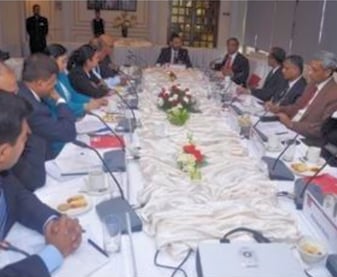

As a Panel Member Shyam Rao spoke at the workshop on Inclusion Thought Leadership Conclave, New Delhi on Payments, Mobility & Electronic Money Transfers.
He emphasized that Mobile payments are evolving rapidly and changing the way consumers and businesses operate. But the biggest challenges facing Payments, Mobility & Electronic Money Transfers it not about evolving technology or security but changing the way people think about paying for purchases and services.
While the majority of business leaders believe consumers are currently concerned about security and privacy when using mobile devices, they believe other factors are more compelling attributes of a successful mobile payment strategy.
Specifically, 81 percent believe Convenience/ accessibility is the highest attribute, followed by simplicity/ease of use, at 73 percent.
Other important attributes mentioned by the business leaders include speed (68 percent), rewards/incentives (60 percent), and integration with other services/platforms (57 percent).
Shyam Rao also discussed the importance of educating consumers about the benefits and security of mobile payments. He argued that businesses and industry leaders need to work together to build trust and confidence among consumers, so they feel comfortable using mobile payment methods.
Additionally, he emphasized the need to focus on the unbanked and underbanked population, as they are the ones who can greatly benefit from mobile payment solutions. By providing them with easy and secure ways to make payments and access financial services, mobile payments can contribute to financial inclusion and empowerment.
Overall, the workshop highlighted the need for a shift in mindset and perception towards mobile payments. While technology and security are important, the focus should be on convenience, ease of use, and educating consumers about the benefits and security of mobile payments.
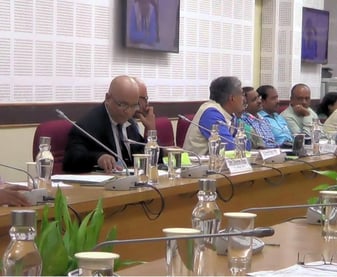

As Speaker at National Institute of Rural Development and Panchayati Raj, This seminar was organized with the objective to create and establish a platform for confluence and partnership with Corporate Business Houses, Rural Development and Panchayati Raj functionaries, Civil Society Organizations, Educational and Capacity Building Institutions for sharing knowledge, skills and expertise and taking up joint program for capacity building for Social Responsibility, Regulations and Inclusive Growth. To create case studies relevant to the areas for effective program to implementation, including international success stories for adoption. To initiate action research on innovative, community- oriented micro projects/ entrepreneurship models by seeking to integrate the SHGs and Panchayati Raj Institutions across the country for new models of development.
Shyam Rao have recommended that various models to establish a platform for collaboration between corporate entities, government, civil society organizations, educational institutions, and capacity building institutions. He said we should share knowledge, skills, and expertise in order to develop joint programs for capacity building and social responsibility. Additionally, he emphasized initiate action research on innovative projects and entrepreneurship models that integrate self-help groups and Panchayati Raj Institutions for inclusive and sustainable development.
